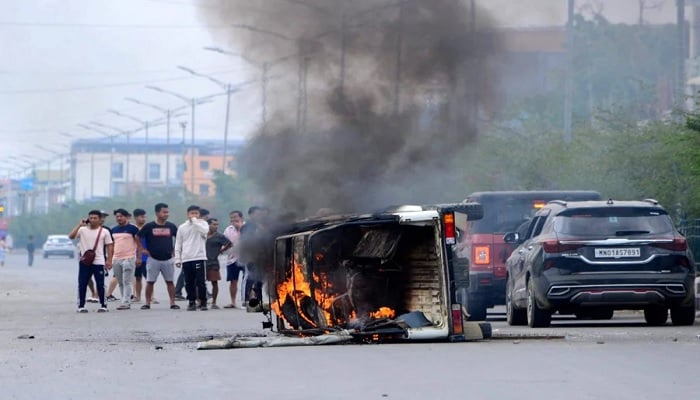WASHINGTON (Reuters): The U.S. State Department’s annual human rights assessment, opens new tab found “significant” abuses in India’s northeastern Manipur state last year and attacks on minorities, journalists and dissenting voices in the rest of the country.
Manipur has seen fierce fighting, opens new tab between its tribal Kuki-Zo and majority Meitei populations after a court order a year ago suggested the Kuki’s minority privileges be extended to the Meitei. More than 200 people have been killed.
The State Department report said over 60,000 people were displaced between May and November in Manipur.
There was no immediate comment on the report from the Indian embassy in Washington.
In the rest of India, the State Department reported “numerous instances” in which the government and its allies “allegedly pressured or harassed media outlets critical of the government.”
For example, the Income Tax Department searched the BBC’s offices, opens new tab in early 2023 after it released a documentary critical of Hindu nationalist Prime Minister Narendra Modi. The Indian government said at the time the search was not vindictive, opens new tab.
Reporters Without Borders ranked India at 161 out of 180 countries on its press freedom index in 2023, the country’s lowest position ever.
The U.S. assessment said religious minorities in India reported discrimination including calls for violence and spread of misinformation.
Modi, who is favored to win a record-equaling third term in an election under way until June 1, denies abuse of minorities, opens new tab and says his policies aim to benefit all Indians.
Human rights groups allege the climate has deteriorated under Modi. They point to rise in hate speech, opens new tab, the revoking, opens new tab of Muslim-majority Kashmir’s special status, a citizenship law, opens new tab that the U.N. calls “fundamentally discriminatory” and the demolition of Muslim properties, opens new tab in the name of removing illegal construction.
While the U.S. report hit on themes similar to recent years, political analysts say Washington is restrained in its public criticism of New Delhi because the U.S. hopes India will act as a counterweight to an expansionist China.


Comments are closed.